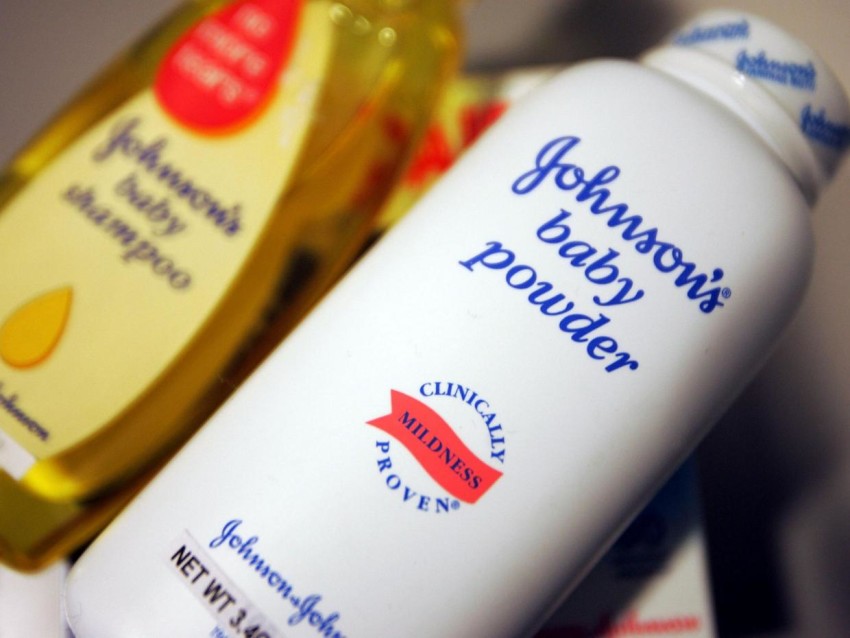More than 1,000 women are suing the company for covering up a cancer risk.
Story culled from Bloomberg, By Susan Berfield, Jef Feeley, and Margaret Cronin Fisk | March 31, 2016
Jacqueline Fox worked in restaurant kitchens and school cafeterias, cleaned people’s houses, watched their kids, raised a son, and took in two foster children. She was careful about her appearance and liked to tend the garden in front of her home in Birmingham, Alabama. She had been treated for high blood pressure, arthritis, and diabetes, but, at 59, she was feeling pretty good. In the spring of 2013, her poodle, Dexter, began acting strangely. He’d jump on her, he’d cry, he’d stay close by all day. Fox happened to watch a television program about a dog that sensed its owner was unwell. When she let Dexter sniff her, he whined even more.

A week later, Fox was diagnosed with advanced ovarian cancer. She had chemotherapy to shrink the tumors and surgery to remove her uterus, ovaries, fallopian tubes, and part of her spleen and colon. In December of that year, she saw a commercial from an Alabama law firm, Beasley Allen, suggesting a connection between long-term use of Johnson & Johnson’s Baby Powder and ovarian cancer. Fox had been sprinkling Baby Powder made from talc on her underwear every day since she was a teen. “I was raised up on it,” she later said in a deposition. “They was to help you stay fresh and clean. … We ladies have to take care of ourselves.” It was as normal as using toothpaste or deodorant. “We both were a bit skeptical at first,” says her son, Marvin Salter, a mortgage banker in Jacksonville, Fla. “It has to be safe. It’s put on babies. It’s been around forever. Why haven’t we heard about any ill effects?”
Fox died from the cancer in October 2015. Four months later, a jury in St. Louis concluded that talcum powder contributed to the development of the disease and that Johnson & Johnson was liable for negligence, conspiracy, and failure to warn women of the potential risk of using Baby Powder in the genital area. The verdict, decided by a 10-2 vote, included $10 million in compensatory damages and $62 million in punitive damages, more than Fox’s lawyers had recommended. Salter bowed his head and wept.
“People were using something they thought was perfectly safe,” he says. “And it isn’t. At least give people the choice. J&J didn’t give people a choice.” Among the most painful revelations, he says, was that in the 1990s, even as the company acknowledged concerns in the health community, it considered increasing its marketing efforts to black and Hispanic women, who were already buying the product in high numbers. Fox was black. The jury foreman, Krista Smith, says internal documents provided the most incriminating evidence: “It was really clear they were hiding something.” She wanted to award the Fox family even more. Imerys Talc America, the biggest talc supplier in the country and the sole source of the powder for J&J, was also named as a defendant. The company wasn’t found liable.
“Jury verdicts should not be confused with regulatory rulings or rigorous scientific findings,” Carol Goodrich, a spokeswoman for Johnson & Johnson Consumer, said in an e-mail. “The overwhelming body of scientific research and clinical evidence supports the safety of cosmetic talc.” The company says it will appeal the verdict. In a statement, Imerys said it’s “confident that its products are safe for use by its customers. Our confidence is supported by the consensus view of qualified scientific experts and regulatory agencies.”
Johnson & Johnson has spent more than $5 billion to resolve legal claims over its drugs and medical devices since 2013. That year, it agreed to pay $2.2 billion to settle criminal and civil probes into claims that it illegally marketed Risperdal, an antipsychotic drug, to children and the elderly; two other medicines were included in the settlement. It was one of the largest health fraud penalties in U.S. history. The company has also agreed to pay some $2.8 billion to resolve lawsuits about its artificial hips and $120 million for faulty vaginal-mesh inserts. In its 2015 annual report, J&J stated that more than 75,000 people had filed product liability claims, and that didn’t include the talc powder cases.
Source: www.bloomberg.com

